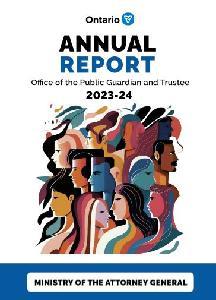Argentina’s Senate has made a daring move by approving Milei’s controversial labor reform, signaling a crucial push toward deregulation aimed at sparking economic growth amid soaring inflation and unemployment, Bloomberg reports
Browsing: legislation
The House has just passed a controversial bill that many fear could create new voting obstacles for married women by imposing stricter ID and residency requirements. Advocates warn this measure might unfairly target female voters, sparking serious concerns about voter access and equality
Australia’s parliament has taken bold steps by enacting groundbreaking gun reform and anti-hate laws following the Bondi shooting. These impactful measures aim to tighten firearm controls and aggressively combat hate crimes, responding directly to growing public safety concerns
Prime Minister urges Labor to address gun control and hate speech laws separately, emphasizing that tackling each issue individually will result in stronger, more effective legislation, The Guardian reports
Australia’s Northern Territory is on the brink of revisiting its assisted dying laws for the first time in more than 30 years. This landmark moment ignites a fresh and passionate debate on end-of-life choices, reflecting shifting public attitudes and growing legal challenges nationwide
Australia’s gun laws, already among the strictest in the world, are now facing intense scrutiny after the shocking Bondi massacre. This tragic event has ignited a powerful call for lawmakers to introduce even tougher measures, fueled by a fierce determination to prevent such violence from ever happening again
Chaos erupted in Brazil’s Congress as lawmakers clashed fiercely during the vote on former President Jair Bolsonaro’s sentence. This electrifying showdown laid bare the deep political divisions fracturing the nation. Reporting by BBC
NSW’s new laws came into force today, sparking a surge of reactions across the state. Authorities acted swiftly to enforce the rules, underscoring their dedication to public safety and compliance. Keep following The Guardian for live updates as this story unfolds!
Brazil’s President Lula has made a bold promise to veto a bill that seeks to reduce the prison sentence of his predecessor, Jair Bolsonaro. This resolute move underscores Lula’s commitment to upholding judicial integrity amid escalating political tensions
Prime Minister Albanese has launched bold new measures to strengthen gun laws following a tragic shooting in Bondi. This decisive move aims to enhance public safety and tackle growing concerns over firearm-related violence throughout Australia
Canada has revamped its Criminal Code to provide stronger protections for victims and impose harsher penalties on child predators. These powerful new laws aim to enhance safety and ensure quicker justice nationwide
E&E News reports that the first permitting reform bills have finally hit the House floor, marking a crucial step toward speeding up and streamlining infrastructure approvals. Lawmakers are now locked in intense debates over the potential impacts of these changes on both the environment and energy development
Italy has taken a bold leap forward by enacting a new femicide law aimed at combating gender-based violence. However, many women’s rights advocates contend that the legislation still misses the mark, lacking essential measures to address the root causes and offer real support for survivors
German lawmakers have enthusiastically approved the 2026 federal budget, setting the stage for a powerful economic comeback and a major surge in defense funding. This bold strategy also champions cutting-edge green energy projects and fortifies social programs, tackling urgent global challenges with determination
New legislation is set to restore funding to Brand USA, igniting a fresh wave of energy to supercharge U.S. tourism promotion. This thrilling move is poised to draw more international travelers and deliver a major boost to the travel industry’s vibrant comeback
The United Kingdom has launched a groundbreaking new bill set to revolutionize cyber defences, protecting critical infrastructure and businesses from the rising tide of cyber threats. This bold move represents a major breakthrough in the nation’s security strategy
Senators are gearing up to cast their votes today on a revamped bill aimed at finally ending the government shutdown. Stay tuned for live updates as lawmakers work around the clock to finalize crucial details and secure bipartisan support
Ontario trustee resigns after Education Minister pushes for removal over $45K Italy art trip. This developing controversy ignites a fierce debate on accountability and oversight in school board spending. – CBC
Brazil has just passed a groundbreaking bill that mandates online age verification and strengthens protections for children’s data, marking a bold leap forward in preventing underage access and enhancing privacy safeguards across all digital platforms
Argentina’s President Milei has stunned the nation by vetoing a vital law designed to fund pediatric hospitals, sparking intense controversy in the midst of heated healthcare debates. This daring move has ignited widespread alarm over the future of child health services and raised urgent questions about the government’s true priorities




















